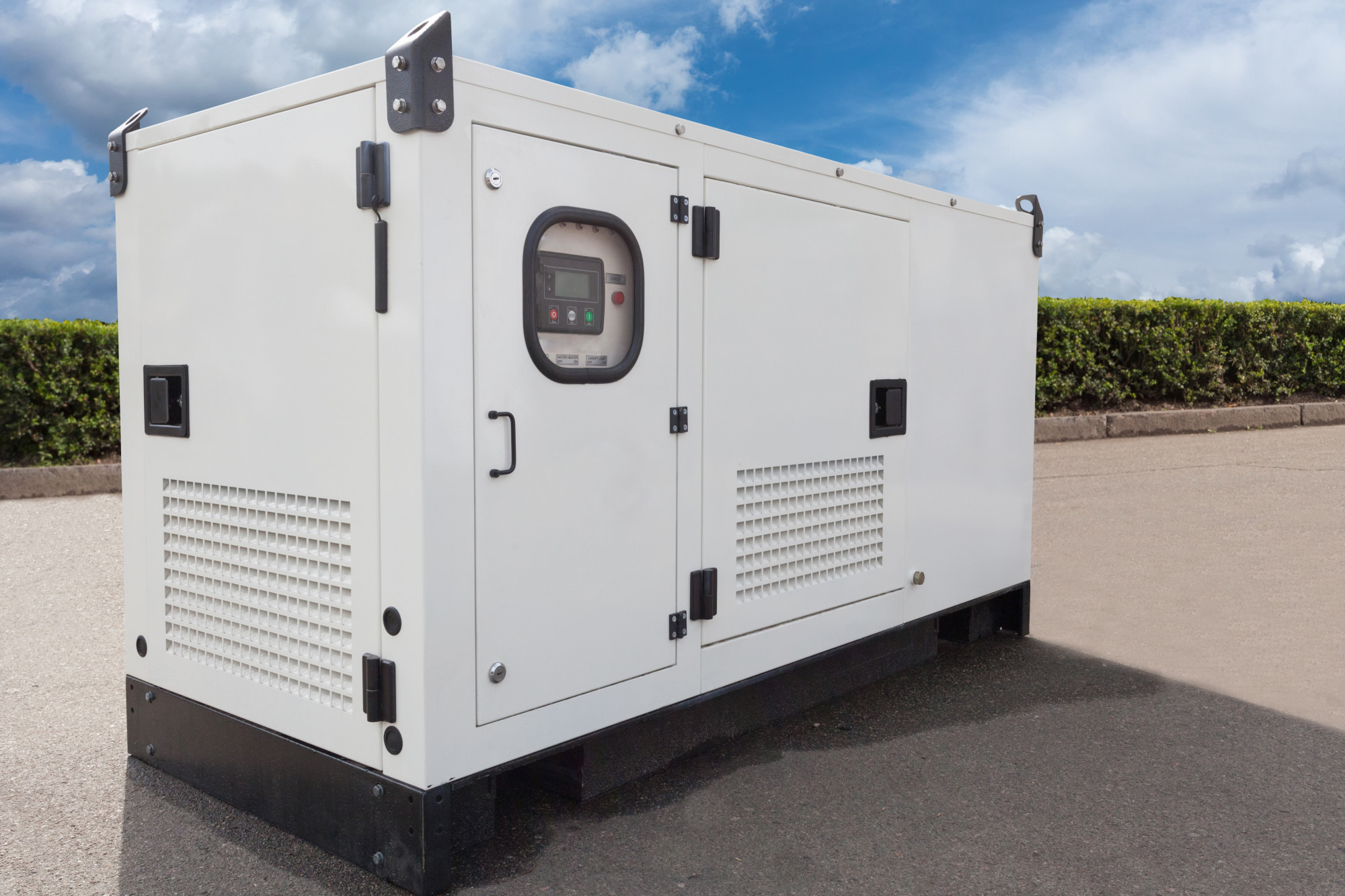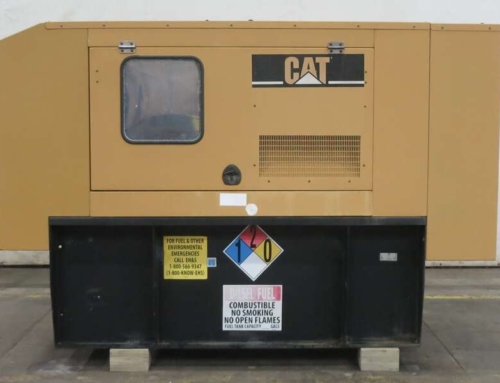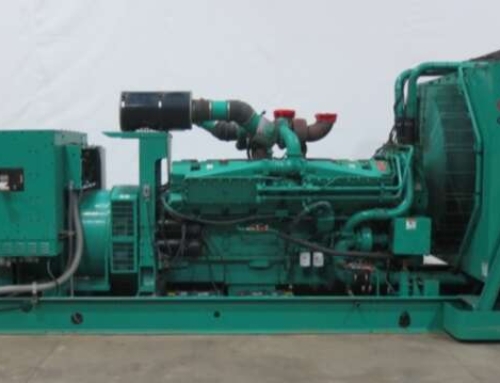Brushless Diesel Generators vs Brushed Diesel Generators
Power generators are an important part of a business operation as they provide electricity in case of a power outage. So, it is important to choose a generator that fulfills your power needs and provides appropriate support to your business operations. And so that you make the right decision and select the right generator, it is important to know the difference between brushed and brushless generators.
A generator has an alternator that converts mechanical energy into electric energy. And it does so by spinning a magnetic field using a rotor to generate energy.
When it comes to a brushed generator, carbon brushes are used to conduct electricity. Brushless alternators, on the other hand, use two sets of rotors spinning together for generating and transferring electric current.
Such a generator features an excitation alternator, wherein the exciter armature is the rotating armature, while the exciter field winding acts as the stationary armature. Here, the exciter field produces a magnetic field with the help of an Automatic Voltage Regular or Residual magnetism. When it starts rotating, a voltage is generated in the exciter armature, which in turn provides current to the main field to produce a magnetic field in the main armature.
A brushless generator is considered a lot more efficient as compared to brushed ones as they run on self-control mode. That apart, there are several other benefits of a brushless generator that makes it a better choice over brushed ones. This is why industry experts prefer brushless generators when efficient performance is expected.
Did you Know? A brushless generator is also known as a Permanent Magnet Generator. In a permanent magnet synchronous generator, the excitation field is provided by a permanent magnet instead of a stationary coil wire!
Reasons Why Brushless Generators are a Preferred Choice
Brushless generators prove to be ideal primary generators, especially for long-term use, and for establishments that require high power. Since a brushless alternator has no brushes and fewer moving parts, requiring lesser maintenance and fixes. This not only makes them hassle-free but also more economical. Some of the main advantages of using a brushless generator are:
Lower Noise Levels
Brushless generators are less noisy as compared to brushed generators and thus amount to a smoother operation. Since there are no brushes, there is very little friction inside the machine during the functioning of the generator
Reduced Occurrences of Breakdowns
No brushes also mean fewer chances of overheating and breakdowns. With fewer moving parts, it experiences lesser wear and tear and requires very little maintenance and expenses once it has been purchased
Improved Voltage Regulation
At the end of the rotor of the brushless generator, one can find an Automatic Voltage Regulator also known as AVR. As the name suggests, the voltage regulator is tasked with controlling the DC voltage produced. The Automatic Voltage Regulator does so, by controlling the level of magnetism within the main rotor, and hence the voltage produced as the lines of the magnetic field cross over the stator windings.
Longer Shelf Life
Brushless generators might be slightly on the expensive side as compared to brushed ones, but they have a much longer shelf life. Add to it less maintenance and less operational hassle, and you have a generator that will give you very little trouble in the long run
Handy Design
The design of a brushless generator is a lot more compact and lighter, making them more portable and easier to move as compared to the brushed ones
Reasons Why Brushed Generators are Not Preferable
Brushed generators come with a whole list of disadvantages, making them a secondary choice by industry experts
Extensive Maintenance
Brushed generators require heavy maintenance and cleaning on a timely basis. This can happen even while the generator is being used. The brushes require frequent cleaning to keep them running smoothly. Even then, they don’t provide the same output as the brushless generators do
Overheating Issues
The contact resistance between the brushes and commutator is very high. This results in greater friction and a high possibility of overheating. A magnet helps brushed generators to operate, and a high temperature due to overheating can damage the magnet, resulting in expensive repairs.
You may also like to read: 3 Phase Industrial Generator Buying Guide
Reduced Efficiency
A lot of the mechanical energy that the brushes generate is converted into heat due to friction, making brushed generators less efficient. There is a large amount of energy that gets wasted in the process.
Generators are important machines and they are used in a wide range of industries as well as personal usage. From real estate, construction, hospitals, schools, emergency services, industries, and manufacturing establishments, to factories, cold storage, mining, civil air defense projects, etc, generators can be seen everywhere. Whether you opt for a brushed generator or a brushless one will mainly depend on its usage.
If efficiency and long-term usage are what you are looking for, then brushless generators are the best choice. They provide durable performance while requiring very little maintenance. This makes them a worthy investment for all purposes.
CONTACT US FOR ANY EXPERT ADVICE
Frequently asked questions regarding brushless vs brushed generators
Is a brushless motor better than a brush generator?
Brushless motors are designed to perform better than brushed ones. The absence of brushes means there is less friction inside the generator, providing higher output. In general, a brushless DC motor requires less maintenance as there are fewer moving parts and which go through lesser wear and tear, making them last longer. Besides, brushless generator produce power, that is significantly in excess of their brushed counterpart. Brushed alternators, on the other hand, are less efficient, high on maintenance, and provide less output. Due to their brushes, they are also prone to overheating, reducing their safety quotient.
Are there any disadvantages of brushless generators?
Every machine has its own limitations, so is the case with brushless generators. However, they are more like case-to-case shortcomings instead of disadvantages. Because of their complex design and the kind of material required to build them, they are slightly on the expensive side. That said, brushless generators have a long shelf-life and demand less maintenance, eventually paying for themselves in the long run.
Why brushless generators are ideal for bigger output voltage?
Brushless generators can be your primary generator as they can provide higher AC output and can be run for continuous usage as well. Their reliability, efficiency, enhanced performance, low maintenance, and long shelf-life make them ideal for high-demand situations.







![Big Generators: How does it work? [with 7 Industrial Applications]](https://csdieselgenerators.com/wp-content/uploads/2023/06/commercial-operations-500x383.jpeg)